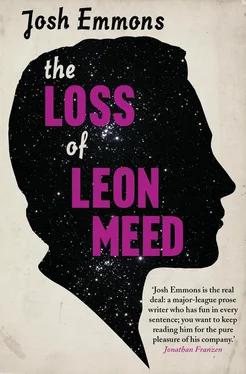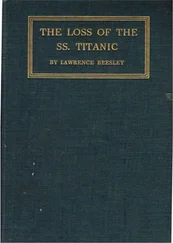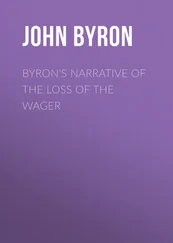When Joon-sup parked along the edge of the Arcata Plaza, still shaking, the Humans for the Pacific Black Brant rally was about forty people in clusters around an Earth Mother woman wearing a lavender sarong and standing on a large box with the word “soap” stenciled across every side. Two of Joon-sup’s coworkers from the Better Bagel, Alleycat and Soulbrother, held hand-painted posters with colorful depictions of the black brant in flight. Majestic creatures, rare and fine with white bellies and noble dark wings, requiring large areas of undisturbed tundra in which to stop during their flights between the Arctic Coastal Plain and Baja California. Joon-sup had never seen one of these birds in the flesh, which was compelling evidence that something needed to be done to protect them. He had almost killed someone. Manslaughter. Plans to develop offshore oil drilling along the northern Humboldt seashore—and what a dangerous future the state faced without adequate electricity—were getting daily more serious, so a group of environmentalists and concerned local citizens had come to protest the quick fix of fossil fuel development. He had driven right through a man.
“Jack,” said Alleycat in his feral purr, “what’s the good word?” Alleycat was pot-bellied with a Vandyke goatee and Van Gogh red hair.
Joon-sup shrugged.
“The mayor was here a minute ago,” said Soulbrother, “to bestow his blessing.”
“It was a bestowal,” agreed Alleycat.
“Said the city council has penned a letter to Congressman Sawyer demanding that the oil scouts be held in abeyance.” Soulbrother wore a nest of Ugandan bead necklaces and held a jade-tipped staff in his left hand. Alleycat also had a staff, though his was a weathered piece of driftwood without ornamentation.
“Until it can be proven that the black brant doesn’t nest in the sound.”
“Except that everyone knows it does, so we’ll get a permanent abeyance.”
“It’s crafty and it’s just.”
“The fate of the Pacific black brant is intricately tied to the fate of California itself,” the woman with the microphone was saying. “If we allow its natural habitat to be torn up so Big Oil can come in and bleed the ocean for a few more years of gas dependency, what’ll we have? We’ll have a displaced black brant, which might just be an extinct black brant, and a wounded Humboldt Sound and further retardation of alternative energy research. Will the problem of California’s energy needs be solved by however many millions of barrels of crude oil can be pumped out of our ocean? Of course not. There are far too many of us, and our needs are too great. All we’ll have as a result is a permanently impaired ecosystem.” She paused and looked searchingly at the crowd and someone made a low moaning noise. “Does anyone remember the Bligh Reef in the upper Prince William Sound, where Exxon spilled eleven million gallons of oil in 1989? While efforts to clean it up succeeded in some ways, there were still vestiges left over a decade later, in areas sheltered from weathering processes, such as in the subsurface under selected gravel shorelines, and in some soft substrates containing peat.” A quick scan of the people around Joon-sup showed how unacceptable this was. Peat in the soft substrates? She might as well have been describing child pornography.
Joon-sup clasped his shaking hands behind his back and declined Alleycat and Soulbrother’s suggestion that he get his own staff and join them for a walk through Arcata Park with some pot and a ukulele.
Earlier that day, Eve Sieber applied a darker shade of black lipstick than normal and wandered the aisles of Bonanza 88, noting how little effect the blue-light special on cutlery was having on the store’s business. Despite the ad in the Times-Standard, potentially seen by over forty thousand people countywide, no one was thronging into the place to snatch up low-grade knives and forks and serving salad prongs. Was Eve surprised? No. The metal was cheap and flimsy. The spoons looked likely to bend under the strain of a bite of minute rice, and the forks were too small to provide the fulsome bites of steak and pasta that Eureka’s bargain hunters demanded. Even with prices slashed below cost—and what a minor bloodbath it was—this sale barely competed with the deep-discount chain stores that, because of their size and intimacy with manufacturers, could afford to sell everything at the leanest rates.
Eve returned to the cash register and tried to figure out if she had a cavity in one of her upper left molars and organized the open box of chocolate eggs meant to be irresistible to women in the checkout line. Her manager, Vikram, was hanging a perforated-edged WARNING: GREAT SAVINGS HERE! sign over the cutlery display, a warning unheeded by the four customers listlessly examining paper cups and Limoges Nativity scenes. Vikram was a tall man with movie-star cheekbones and elephantine ears who’d moved to Eureka the previous year to work at a newly opened software development plant but was fired when the company’s abysmal third-quarter earnings report led to layoffs of fifty percent of its employees. Vikram, by then in love with a shaggy-haired lesbian named Callie who worked at a travel store called Going Places, decided not to return to the Bay Area and instead to concentrate all of his psychological and romantic powers on winning Callie’s affection. He described his life as an act of radical romanticism.
“Hey you!” Vikram said to Eve. “Could you do me the kindness to please bring two fishhooks here?”
Eve dug into the display supply box stashed under the checkout counter and brought them to Vikram. “We’re never going to sell all these cutlery sets,” she said, straightening a stack of boxes. “There’s forty more in the back.”
“Forty-four,” he corrected her.
“So much the worse.”
“That is the wrong attitude to have toward this fine Millennium Dreams Cutlery Set. In Gujurat we’d kill to get such inimitable craftsmanship, such loving attention to detail.” Holding up a tarnished knife so flimsy that it almost wobbled, he whispered, “Such a bonanza of practical value.”
The two of them laughed. Making fun of Bonanza 88’s wares was among their favorite activities, though it usually led to an existential despondency—after all, they did nothing all day but sell these wares—from which they didn’t fully recover until the end of the day.
“Do you know the bar Callie goes to, the Pleather Principle?” Vikram asked.
“I haven’t been in it. Why?”
“The man who goes there might have an opportunity of knowing her in a more congenial setting than the Going Places.”
“It’s a lesbian bar.”
“My point exactly.”
“So men aren’t welcome.”
“What if the man looks like a woman?”
“You’d never get away with it and you’d end up humiliated. Maybe even beaten up by some hardcore bull dykes.”
Vikram folded up the step ladder he’d used to hang the sign. “You’re right. You see some things so clearly.”
At lunch Eve went to the back office to use the phone. She had a responsibility as an adult to alert the police about the man she’d met at the Fricatash—not that the police were her or her friends’ most trusted allies, but she acknowledged their authority in certain matters—and so called the sheriff’s office. She was put on hold for twenty valuable lunch-break minutes, at which point she talked to an Officer Fuller, who took her statement and thanked her for the interesting information regarding the Leon Meed missing person case.
“What happens now?” Eve asked.
“With what?” Officer Fuller responded.
“Do I need to identify him or something?”
“He’s not a criminal suspect.”
Читать дальше












